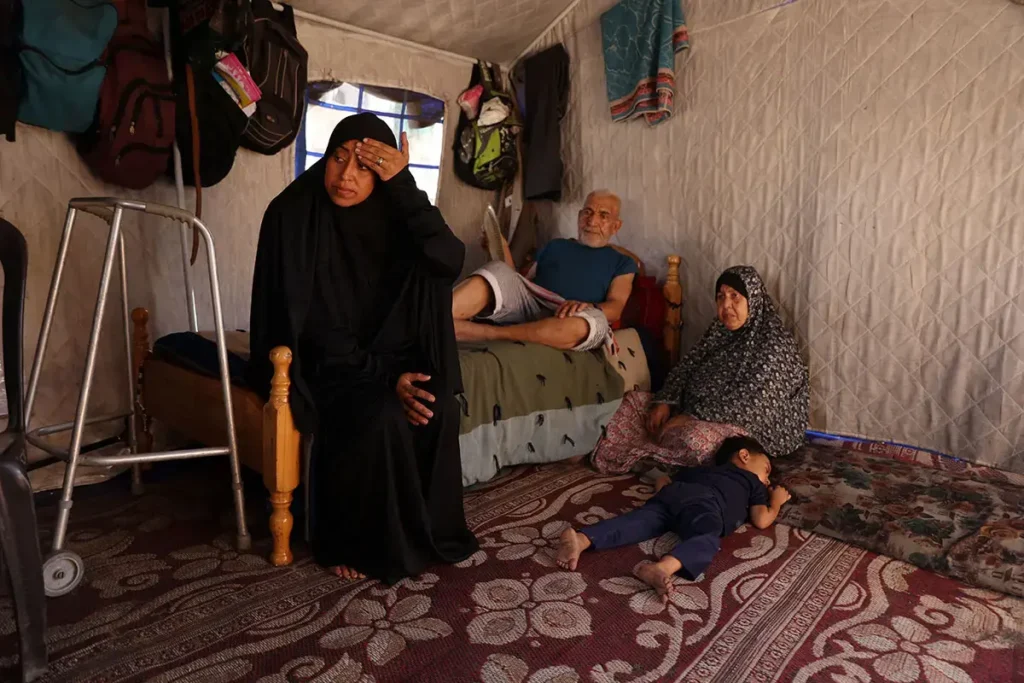Not since 1946 has the world experienced this number of active conflicts consecutively, creating unprecedented levels of risk and suffering for women and girls, according to the United Nations this week.
Now, 676 million women are living within fifty kilometres of deadly conflicts. The number of women and children casualties has quadrupled compared to the previous two-year period, and there has been an 87 per cent increase in conflict-related sexual violence in two years.
The UN warning comes on the 25th anniversary of Security Council resolution 1325, committing the international community to women’s full participation and protection in peace and security.
The anniversary report shows that the progress gained is fast unravelling.
And women continune to be excluded from a say on resolving conflicts.
Nine out of ten peace processes had no women negotiators in 2024, according to the UN report. Globally, women make up just 14 per cent of mediators and a tiny 7 per cent of negotiators.
Meanwhile, global military spending surpassed US$2.7 trillion last year, while women’s organisations located in conflict zones received just 0.4 per cent of aid. Frontline women’s groups are financially constrained, with many facing imminent closure.
The world is choosing to invest in war over peace. And continuing to exclude women from shaping solutions.
As Sima Bahous, UN Under-Secretary-General and UN Women Executive Director, says: “Women and girls are being killed in record numbers, shut out of peace tables, and left unprotected as wars multiply. Women do not need more promises; they need power, protection and equal participation.”
The report calls for an urgent revolution in gender data to measure women’s realities in war zones, make these realities visible and accounted for. This data can help increase accountability and underscore the urgency of placing women’s experiences at the centre of decision-making.
Bauhaus said UN Women is calling for concrete, measurable resolutions and for more women to lead security reforms and recovery efforts. UN Women is also calling for greater accountability on violence, including access to justice and reparations for survivors.
Overall, the increase in global conflicts, coupled with the lack of progress in women’s entry into negotiating spaces, presents a challenging situation. Despite significant increases in educational attainment and women’s workforce participation, women are still not being given a space at the table on peace and conflict negotiations.
In the past two years, we’ve seen the consequences of this imbalance play out in the Middle East, especially in Gaza where women and girls have been killed at a rate of two every hour for the past two years.
A UN Women press briefing on the situation this week shares the dire figures and notes that the needs of those who have survived are at an all-time high, with more than one million requiring food aid, including a quarter of a million needing urgent nutritional support. Most women have been displaced at least four times over the course of the war, and one in seven families is now led by a woman. While women in Gaza have shared with UN Women their hopes that the ceasefire will hold, the situation remains precarious and mostly in the hands of men.
Photo above from UN Women: Fullah Ziyad Khalil Arafat is responsible for caring for and providing for eight people now, including her husband’s parents and her five children. Photo: UN Women


